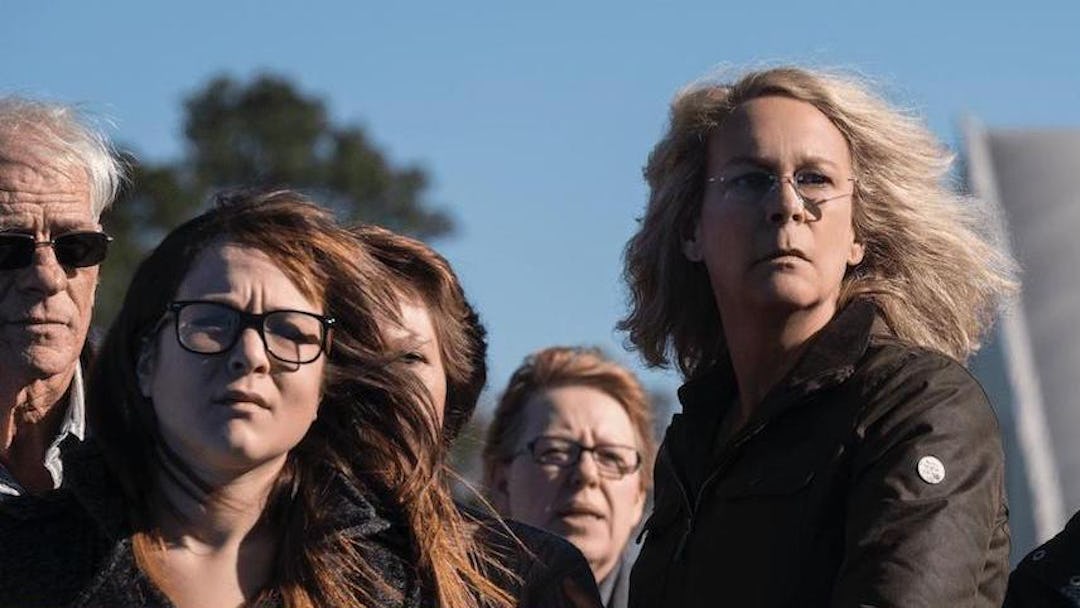We’re knee-deep in awards season, with most of the critics’ honors announced, the Golden Globes distributed last weekend, and a full slate of other JV ceremonies lined up on the runaway — all leading up to the big enchilada, the Academy Awards, on Feb. 22. Those nominations will be announced on Tuesday, Jan. 22, and over the months-long run-up to that big morning, Best Actress has emerged as one of the most competitive categories; based on the awards and honors thus far, those five slots could go to any of a dozen possible nominees: Olivia Colman (The Favourite), Lady Gaga (A Star is Born), Glenn Close (The Wife), Melissa McCarthy (Can You Ever Forgive Me?), Emily Blunt (Mary Poppins Returns), Yalitza Aparicio (Roma), Nicole Kidman (Destroyer), Viola Davis (Widows), Carey Mulligan (Wildlife), Kathryn Hahn (Private Life), Kiki Layne (If Beale Street Could Talk), Elsie Fisher (Eighth Grade)…
So I realize it’s the longest of possible shots to suggest one more name, and one that hasn’t appeared much of anywhere thus far in The Awards Conversation. But hey, why not nominate Jamie Lee Curtis for Halloween?
Sure, she is (to put it mildly) a dark horse. Genre films are a notoriously hard sell for serious awards contention, and if anyone were to benefit from a moment of kindness towards brilliant acting in horror pictures, it would probably be Hereditary’s Toni Collette. But there’s also a noteworthy precedent here; back in 1987, Sigourney Weaver was nominated for Best Actress for her stellar turn as Ripley in Aliens. Halloween, like Aliens, finds its lead actress returning to the role that made her a star, and playing it with a twist — taking ownership of the character, turning her from the victim of that initial outing into the driving force of its follow-up.
What’s more, the Choose Your Own Adventure-style continuity of this wobbily-connected franchise has allowed Curtis to explore multiple approaches to the character of Laurie Strode, the “Final Girl” of John Carpenter’s original 1978 Halloween , who survives the killing spree of deranged murderer Michael Myers thanks to her pluck, intelligence, and fortitude. The film’s first sequel, Halloween II (1981), set on the same night as the original, finds Laurie in a state of shock (some of it medically induced) from her night of terror, still fighting and running for her life from this tenacious madman. In Halloween H20 (1998), which continues the continuity of that sequel, she’s doing everything she can to hide from Michael — living under an assumed name, telling no one (not even her family or friends) about That Night — but is still haunted by the trauma.
The new Halloween (which, by the way, is currently available on demand and hits disc next week) tosses out the events of Halloween II and H20, and gives Curtis the chance to imagine a very different kind of Laurie Strode. Though still using that name, she is still in hiding; she lives behind a series of gates, locks, hidden rooms, and security camera, a self-constructed den of isolation, seemingly to better protect herself in the event of Michael’s (in her eyes) inevitable return. But when that moment comes, when she discovers that her stalker and would-be killer has not only escaped but his headed her way, she doesn’t hide. She goes to hunt him down. “He’s waited for me,” she says. “I’ve waited for him.”
But this take on the character, this open interrogation of the idea of victimhood and the psychological toll of survival, isn’t just some clever new approach by screenwriters Jeff Fradley, Danny McBride, and David Gordon Green. They’re investing the character with the kind of rich psychological complexity that you often don’t even see in good dramas. Yes, the nostalgia factor undoubtedly plays a hand in our response to Curtis’s work — but there’s more to it than that. She’s been playing this character for four decades, lived with her and thought about her, and many of us have watched her play it our entire lives, so it’s hard to overstate the audience empathy and emotional baggage here — and when they face off at the picture’s conclusion, you’re absolutely with her. (Also, the funniest thing happens: there’s none of that cheering for the boogeyman business of earlier Halloweens, or Elm Streets, or Friday the 13ths.)
But more than that, outside of the character’s history or the actor’s iconography (and to be clear, she’s never been nominated for an Oscar, because her best work — in films like A Fish Called Wanda, Blue Steel, Freaky Friday, and True Lies — comes in disreputable packages), it’s a powerful, moving performance. The aguish she’s going through on the curb outside the restaurant, unable to even navigate a simple social transaction with her family; the little half-smile after she explains, “He’s waited for me. I’ve waited for him”; the way she tells her daughter, sternly, “I have to finish this” before turning back, offering up a tender “I love you baby,” and meaning it. She makes those turns work. She makes the character real. It’s one of 2018’s best performances. And this is probably the last time you’ll hear anyone say that.
